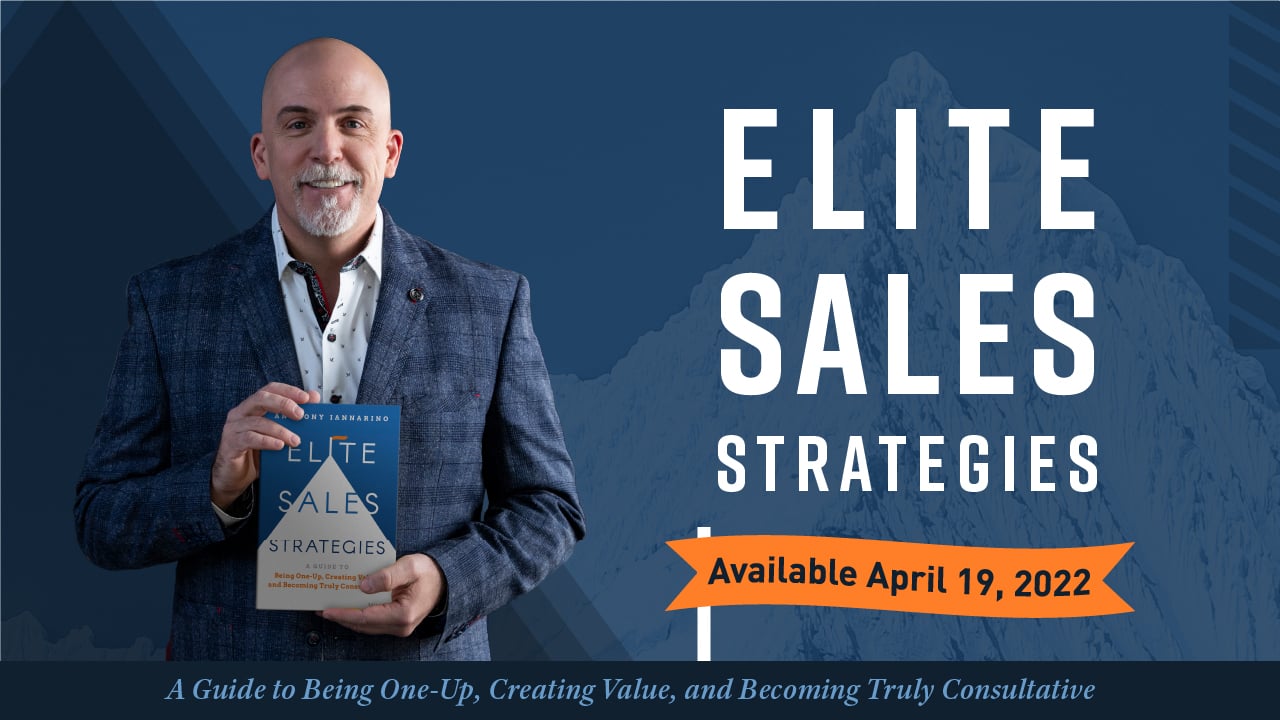There is a difference between the value created in the sales conversation and the value of your product or service, one or both being described as a "solution," a way to solve a problem. The difference between the value of the conversation and the value of your product or service is one of experience. It can be difficult to understand the difference when you believe your solution is the value you provide to your prospective client, even though the only people who experience the value of what you sell are the people who have already bought from you.
Set aside any belief the value you create is limited to your solution long enough that we can separate the sales conversation from the value of what you sell. With those strongly held beliefs out of the way, then look at two different areas of value.
How You Sell: The Sales Conversation
The only vehicle you have available to you to create and win opportunities is the sales conversation. The greater the value you create for your prospective clients, the greater your chances of winning their business and selling them your "solution." The reason the sales conversation exists is that prospective clients need something more than a question to identify "a problem" and a strong pitch for the salesperson's "solution."
The more complex the sale, the more the sales conversation is necessary, as it creates value for the client. In transactional sales, there is no great need for a sales conversation because it isn't generally necessary. The buyer recognizes they have a need, and after asking about price and fit, they can buy what you sell and experience the value.
Let us start with the idea that your prospective clients don't know what they don't know. They are One-Down, meaning they lack the knowledge and experience to make the best decision for their business. They also lack information about the different ways they might improve their results. They hope that one salesperson will sit down with them to help them better understand how to make the right decision and how they should go about improving their results.

The sales conversation allows you to create value for your contacts by helping them understand the reason they are struggling to produce results, replacing their false assumptions with a clearer picture of their reality, helping them recognize what is possible for them, the factors they might need consider about what their "solution" looks like, assess their readiness for change and their obstacles, creating certainty about their future results, and how best they should pursue the changes they must make.
If the partial list of ways you might create value for your prospective clients doesn't look very much like your sales conversation, then your approach is not consultative. The sales conversation is the only vehicle available to you for providing counsel, advice, and recommendations.
To believe your product is the value you provide your clients is to miss creating the value your clients need to prefer to buy whatever you sell from you and your company. For example, there are so many salespeople who sell SAAS (software as a service) that believe their software is the only value to their clients.
To improve your results, you need to believe the greater value comes from the sales conversation and not the value of the solution. How could it be otherwise when your sales conversation is what caused your prospective client to buy what you sell?
What You Sell: The Value of Your Solution
To experience the value of your product or service, your prospective client will be required to sign a contract, transfer money to your company, install or take delivery of what you sell, and begin the work of executing. Until your client takes these actions, they are not going to recognize the value of what you sell.

The reason salespeople ask clients about their problems is mainly so they can talk about their "solution." You will never hear me disparage the value of whatever it is you happen to sell, even though what you sell isn't so different than your competition's, both of them meeting a client's need for pricing and fit. While some solutions are a better fit than others, the only way a client would be able to recognize that fact is through the sales conversation.
A Thought Experiment on the Value You Create
The idea that what you sell is the value you create will limit your effectiveness. The greater value you create is with your insights, your perspective, your counsel, your advice, and your recommendations.
One test you might consider is to pretend that you have no product or service, or solution to sell to your prospective clients. Instead, they hired you as a consultant, your role being limited to providing them with the advice and recommendations that would ensure they make the best decision for their business—even though they will need to buy from someone other than you. Would the conversation you provided them create enough value that they would gladly pay you for helping them make the right business decision?
To improve your results in sales, you need to recognize the sales conversation is the variable to your success. The more the conversation benefits your prospective clients, the greater the value you are creating around their decision and their future results. Limiting your conversation to a question designed to identify a problem and lead to a conversation about your solution, is going to find your clients looking for someone who is One-Up, someone that is capable of being truly consultative.
This is nothing new. Consultative salespeople have been engaged in these kinds of conversations for many decades. The expertise in their industry and their ability to provide good counsel makes them One-Up, and it is also why they have an easier time winning new clients.
You may be late coming to this conversation, but improving your results means separating the two experiences of value creation.









.jpg?width=768&height=994&name=salescall-planner-ebook-v3-1-cover%20(1).jpg)


